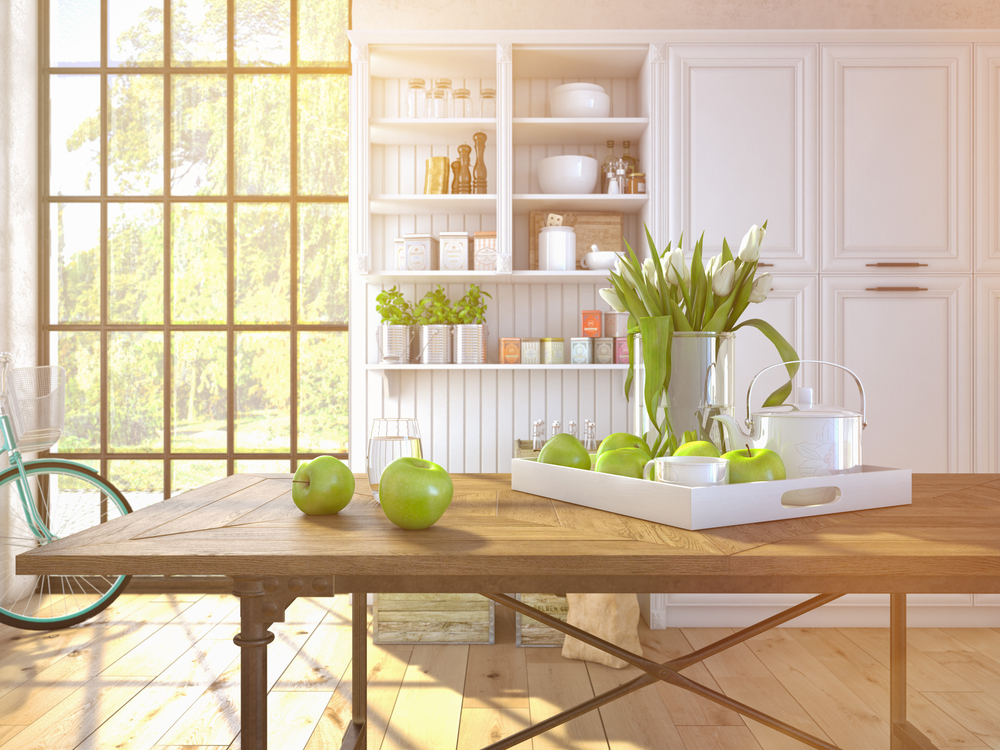Energy-efficient food preparation, eating habits and cleaning regimes can all help make your kitchen do its part for the environment, as can using sustainable materials in your kitchen design. What’s more, the aspects of kitchen life which are good for the planet also tend to be good for your health too, so there’s no reason not to make your kitchen a little greener. Here’s how.
Eat green
Making your kitchen green starts with eating green. A healthy diet of natural ingredients has been shown to reduce the emission of greenhouse gases by up to 6 per cent through a reduction in waste. So not only is eating green good for your body, it can also protect the planet.
Sustainable materials
When it comes to redesigning your kitchen, place particular focus on using sustainable materials like wood to reduce your carbon footprint and build yourself a kitchen that stands the test of time.
Gas versus electric
There’s no right answer when it comes to debate gas and electric stove tops. Gas is a fossil fuel, but electricity also uses up power, so the best choice to make is to select a high quality appliance which you can stick with for years to come. Newer models also tend to be much more energy efficient.
Appreciate your appliances
High quality appliances can be even more efficient than doing things by hand, such as newer dishwasher models which use far less water than washing dishes yourself. However, when the time comes to update your appliances don’t just throw away your old models. Recycle them or keep an eye out for community take-back programs.
Make it last
Cast iron or stainless steel utensils will last much longer then cheaper options, which often have to get thrown away after a few intense cooking sessions. Similarly, low quality wooden spoons can rot over time, and plastic can melt when left on the stove, so choose higher quality options. You should also use washable cloth towels instead of paper.
Source it yourself
Pre-prepared and frozen foods don’t just create more waste, they also increase cooking time because you have to defrost them first. Cooking yourself from scratch is the only way to know exactly what’s going into your food and where it comes from. You should also invest in a tap filter rather than constantly relying on bottled water.
Cook efficiently
Many new cookers reach their optimum temperatures almost instantly, so preheating the oven is increasingly just becoming a waste of energy. Get your food in the oven quickly and get in the habit of cooking multiple items at once to reduce your oven use and increase its lifespan. Items like pressure cookers can reduce cooking times by up to 70 per cent.
Buy in bulk
Food shopping in bulk means less packaging, less travelling to the supermarket and can even save you money. Of course this is difficult with perishables, but things like cans of soup, condiments and even kitchen towels should be bought in bulk.
Buy local
Your favourite Italian grapes may taste delicious, but consider the pollution caused by flying them to your local supermarket in the depths of winter. Buying local, especially from small chain grocers and butchers, ensures that your ingredients don’t come with thousands of miles of air pollution attached.
Make it green and clean
Cheap kitchen cleaning products are often full of toxic chemicals, which themselves are bad for the environment and which can also damage your kitchen surfaces over time. Try to rely on non-toxic, biodegradable, plant-based detergents — or better yet, create your own cleaning concoctions such as baking soda and vinegar.


